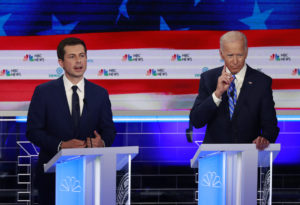What an Underfunded IRS Means for Fraudsters
A $100 million charity fraud that a former Army intelligence officer almost pulled off underscores the criminal enrichment opportunities that weakened oversight bureaus offer clever thieves.
A $100 million charity fraud that a former Army intelligence officer and Harvard Law graduate almost pulled off underscores the criminal enrichment opportunities that weakened oversight bureaus offer clever thieves.
John Light at “Moyers & Company” explained retired officer John Donald Cody’s scheme:
John Donald Cody, a former intelligence officer, put his expertise to use cheating charitable Americans. Under the assumed identity of Bobby Thompson, Cody set up a nonprofit called the US Navy Veterans Association and contracted with telemarketing firms to raise around $100 million in charitable contributions — ostensibly, for needy veterans. The organization, he claimed, had 41 state chapters, 66,000 members and was headed by one Jack L. Nimitz. None of that was true. The organization consisted only of Cody. The charity’s claimed purpose was also false. Most of the money it raised went to the telemarketers and much of the rest went to Cody or to Republican lawmakers he supported. Very little went to veterans.
The New York Times described how inadequate government monitoring made Cody’s fraud possible:
The I.R.S.’s Exempt Organizations Division, which is responsible for supervising the charitable sector, is chronically understaffed. It can’t do much more than process the routine and voluminous reporting of the more than 1.5 million American nonprofits, and keep up with the tens of thousands of applications filed each year to start new charities.
State and local authorities are in no better shape. Joel L. Fleishman, a professor of public policy at Duke, estimates that there are fewer than 100 full-time state charity regulators, far too few to exercise any real oversight.
In the Navy Veterans case, amazingly, the I.R.S. did undertake one of its rare field audits. And yet, despite the fact that the main office was a trailer, its state offices were empty lots or postal drops, and its board of directors and C.E.O. a total fiction, the I.R.S. in 2008 gave the association a “clean bill of health.” It wasn’t until the two reporters came sniffing — first curious about the political contributions and subsequently intrigued by Mr. Thompson’s obvious dissembling — that the real story began to emerge.
Furthermore, with approximately 59,000 charities in the United States with the word “veterans” in their names, only a few experts can say for sure which groups are what they claim to be.
— Posted by Alexander Reed Kelly.
Your support matters…Independent journalism is under threat and overshadowed by heavily funded mainstream media.
You can help level the playing field. Become a member.
Your tax-deductible contribution keeps us digging beneath the headlines to give you thought-provoking, investigative reporting and analysis that unearths what's really happening- without compromise.
Give today to support our courageous, independent journalists.






You need to be a supporter to comment.
There are currently no responses to this article.
Be the first to respond.